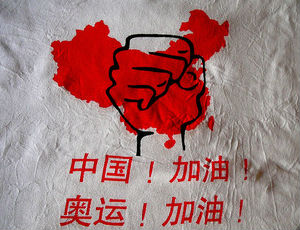China is in the midst of an economic miracle. Being China, it was a long time coming and has lasted a while. The reinvention of the world's second-largest economy and at the same time that of the Communist Party has had a massive effect on its population. These books bear witness to that.
Frog by Mo Yan takes place in the countryside, starting with Tadpole and his classmates eating coal to ward off hunger pangs. As they mature, physical conditions improve, first with the "sweet potato kids," born during a time of agricultural abundance, and moving into the present day, when money can buy just about everything, even a baby. Babies make up most of the plot points in this book, which is primarily about Gugu, Tadpole's aunt and the county obstetrician. Gugu starts out beloved, using modern techniques to save the lives of women in labor and their babies. However, she is a devoted Communist and when the Party institutes its strict one-child policy, Gugu reacts with gusto. This means forced sterilizations and abortions, some late-term. That's how Tadpole's wife and other village women die. At the end of the book, Tadpole and many others forgive Gugu but she is haunted by unborn children. This book is sweeping in scope though it takes place mostly in one village, a microcosm of China itself. There are metaphors and symbolism aplenty.For a literary novel, it reads pretty quickly and you are soon immersed in these many characters' lives.
Anchee Min's Wild Ginger also deals with the ruthlessness of Party cadres during the Cultural Revolution. Girls Maple and Wild Ginger become friends after being bullied by a classmate and her gang who quote Mao. The teachers are terrified of the bully, but Wild Ginger is not and becomes a Party darling as she matures. Mao declares romantic love a bourgeois frippery, and Wild Ginger declares her intention to never marry. However, she falls for a captain of the local Red Guard, who loves Maple. The couple become engaged, but are denounced, and it is up to Wild Ginger as to whether the object of her thwarted desire is to live or die. This engagingly-written story quickly brings you into the lives of the characters and the culture of China in the 60s and 70s.
Yang Lianke did years of clandestine research for his novel Dream of Ding Village, and the book was banned in China as a result. The Chinese government makes a push for blood banks in the early days of AIDS, inducing and coercing by turns the rural villages to participate. In Ding Village, an unscrupulous businessman uses tainted needles and cotton for the blood business, and spreads the dread disease without remorse. He then moves on to selling government-issued coffins to the elite, forcing the less well-off to cut down all the trees in the area for their own, leaving the village exposed to natural disasters. Narrated by relatives of the businessman, including his 12-year-old son murdered as retribution, one sees the price paid for China's push for modernity and relaxed attitude towards corruption.




Add a comment to: Some Modern Chinese History in Novels